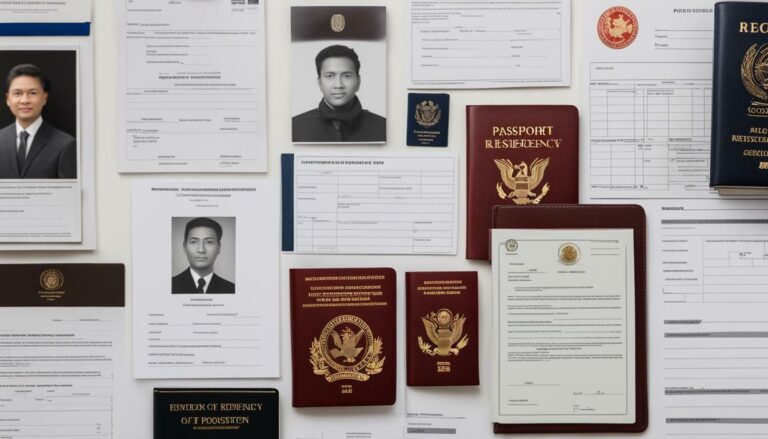Understanding: How Long Does Permanent Residence Status Last in Canada?
Permanent residence status in Canada allows individuals who are not Canadian citizens to live and work in the country without any time limit on their stay. To become a permanent resident, an individual must apply through Immigration, Refugees and Citizenship Canada (IRCC) under various programs. Once granted, permanent residents enjoy many of the same rights and responsibilities as Canadian citizens.
Permanent residents have the right to live and work anywhere in Canada, access healthcare and social services, sponsor family members for permanent residency, and enjoy free education for their children. They are also eligible to apply for Canadian citizenship after a certain period of residency. Permanent residents are protected under Canadian law and have the same legal rights as Canadian citizens.
As permanent residents, individuals must meet the residency obligation of living in Canada for at least 730 days over a five-year period. This requirement ensures that permanent residents are actively living and contributing to the Canadian society. Failure to meet the residency obligation may result in the loss of permanent residency status.
Permanent residency status does not expire as long as the residency requirements are met and the status is not revoked by the Canadian government. However, permanent residents must continue to meet their physical presence obligations, even when traveling outside of Canada. For international travel, a valid permanent resident card is required, which is valid for five years.
It is important to note that permanent residency status can be voluntarily renounced if an individual no longer wishes to maintain their permanent resident status in Canada. Additionally, permanent residency can be lost if the individual becomes a Canadian citizen, commits serious crimes, poses a security risk, or fails to meet the residency requirements.
Key Takeaways:
- Permanent residence status allows individuals who are not Canadian citizens to live and work in Canada without any time limit on their stay.
- Permanent residents have many of the same rights and responsibilities as Canadian citizens.
- Residency obligation requires permanent residents to live in Canada for at least 730 days over a five-year period.
- Permanent residency status does not expire as long as residency requirements are met and is not revoked.
- A valid permanent resident card is required for international travel.
Benefits and Rights of Permanent Residents in Canada
Canadian permanent residents enjoy many of the same rights and responsibilities as Canadian citizens. Permanent residency in Canada allows individuals to live and work in the country without any time limit on their stay. This status is granted to eligible applicants who have successfully gone through the immigration process and have been approved by Immigration, Refugees and Citizenship Canada (IRCC).
One of the key benefits of permanent residency in Canada is the ability to live and work anywhere in the country. Permanent residents also have access to healthcare and social services, ensuring their well-being and quality of life. They have the right to free education for their children, allowing them to provide a quality education for their families.
Permanent residents in Canada can also sponsor eligible family members for permanent residency, promoting family reunification and ensuring their loved ones can also benefit from the opportunities that Canada has to offer. After a certain period of residency, permanent residents are eligible to apply for Canadian citizenship, providing them with additional rights and benefits.
| Rights and Benefits | Description |
|---|---|
| Right to live and work anywhere in Canada | Permanent residents have the freedom to choose their place of residence and employment within Canada. |
| Access to healthcare and social services | Permanent residents have the same access to healthcare services and social programs as Canadian citizens. |
| Ability to sponsor family members | Permanent residents can sponsor eligible family members to come to Canada and obtain permanent residency. |
| Free education for children | Permanent residents can enroll their children in publicly funded schools, providing them with a quality education. |
| Eligibility for Canadian citizenship | After meeting certain residency requirements, permanent residents can apply for Canadian citizenship and enjoy additional rights and benefits. |
It is important to note that permanent residency status does not expire as long as the individual continues to meet the residency obligations of living in Canada for at least 730 days over a five-year period. However, permanent residents must also hold a valid permanent resident card for international travel. This card is typically valid for five years and must be renewed before it expires.
In summary, permanent residency in Canada provides individuals with a wide range of benefits and rights, allowing them to build a life in the country and enjoy many of the same privileges as Canadian citizens. From the freedom to live and work anywhere in Canada to access to healthcare and social services, permanent residents have the opportunity to create a secure and prosperous future for themselves and their families.
How to Obtain Permanent Residence in Canada
To become a permanent resident of Canada, individuals must apply through Immigration, Refugees and Citizenship Canada (IRCC) under various programs. These programs include the Express Entry system, the Provincial Nominee Program (PNP), and the Family Class Sponsorship. Each program has its own eligibility criteria and requirements.
The Express Entry system is a popular route for skilled workers who want to immigrate to Canada. It is a point-based system that ranks candidates based on factors such as age, education, work experience, language proficiency, and adaptability. Candidates with the highest scores are invited to apply for permanent residence.
The Provincial Nominee Program allows provinces and territories in Canada to nominate individuals who have the skills and experience needed in their respective regions. Each province has its own criteria and selection process, and successful applicants receive a nomination that can then be used to apply for permanent residence.
| Program | Eligibility Criteria | Application Process |
|---|---|---|
| Express Entry | Skilled workers | Online application through the IRCC website |
| Provincial Nominee Program | Skills and experience needed in specific provinces | Application through the provincial government |
| Family Class Sponsorship | Canadian citizens or permanent residents sponsoring family members | Application through the IRCC website |
The Family Class Sponsorship program allows Canadian citizens or permanent residents to sponsor their eligible family members for permanent residence. This includes spouses or common-law partners, dependent children, parents, grandparents, and other eligible relatives. The sponsor must meet certain income requirements and agree to financially support the sponsored individual for a period of time.
Once an application for permanent residence is approved, individuals will receive a Confirmation of Permanent Residence (COPR) and a permanent resident visa, if applicable. It is important to note that permanent residents must meet the residency obligation of living in Canada for at least 730 days over a five-year period to maintain their status. Failure to meet this requirement may result in the loss of permanent residency.
Residency Obligations for Permanent Residents in Canada
Permanent residency in Canada comes with certain obligations that individuals must fulfill to maintain their status. One of the primary obligations is the residency requirement, which states that permanent residents must live in Canada for at least 730 days over a five-year period. This ensures that individuals have a strong connection to Canada and actively contribute to the country’s social and economic fabric.
During the five-year period, permanent residents have the flexibility to travel outside of Canada. However, it is important to note that absences from the country can affect the fulfillment of the residency obligation. Short trips may not impact the requirement significantly, but long absences or extended stays abroad can pose challenges. To meet the residency obligation, individuals should plan their travel accordingly and maintain a record of their time spent in Canada.
In addition to the residency requirement, permanent residents must also ensure that they meet other obligations, such as paying taxes, obeying Canadian laws, and not being convicted of serious criminal offenses. Failure to meet these obligations can lead to the revocation of permanent residency status by the Canadian government.
Residency Obligations Summary:
- Permanent residents must live in Canada for at least 730 days over a five-year period.
- Travel outside of Canada is allowed, but prolonged absences can impact the residency obligation.
- Other obligations include paying taxes, obeying Canadian laws, and avoiding serious criminal convictions.
- Failure to meet the residency obligations can result in the revocation of permanent residency status.
| Residency Obligations for Permanent Residents in Canada |
|---|
| Live in Canada for at least 730 days over a five-year period |
| Ensure travel outside of Canada does not jeopardize the fulfillment of the residency obligation |
| Pay taxes, obey Canadian laws, and avoid serious criminal convictions |
| Failure to meet residency obligations can lead to the revocation of permanent residency status |
It is essential for permanent residents to understand and fulfill their residency obligations in Canada. By doing so, they can continue to enjoy the privileges and benefits that come with permanent residency status, such as access to healthcare, education, and the ability to sponsor family members for permanent residency. Meeting these obligations demonstrates a commitment to Canada and a willingness to contribute to the country’s diverse and vibrant society.
Travel Requirements for Permanent Residents in Canada
Permanent residents can leave Canada, but they must continue to meet their physical presence obligations. In order to travel internationally, permanent residents are required to have a valid permanent resident card. This card serves as proof of their permanent residency status and is valid for a period of five years. It is important to note that permanent residents must ensure that their permanent resident card does not expire while they are abroad, as they will need a valid card to return to Canada.
When traveling outside of Canada, permanent residents should also carry their valid passport from their country of citizenship. This is necessary for re-entry into Canada, as the permanent resident card alone is not sufficient. It is advised to check the entry requirements of the destination country and obtain the necessary travel documents, such as visas, before departure.
It is important for permanent residents to be aware of the residency obligations imposed by the Canadian government. In order to maintain their permanent residency status, they are required to live in Canada for at least 730 days within a five-year period. This means that periodic trips abroad should not exceed the maximum allowed time outside of Canada. Failure to meet the residency requirement may result in the loss of permanent residency status.
| Travel Considerations for Permanent Residents in Canada | Important Information |
|---|---|
| Valid Permanent Resident Card | Ensure that the permanent resident card is valid for the duration of travel and return to Canada. |
| Passport | Carry a valid passport from your country of citizenship in addition to the permanent resident card. |
| Residency Obligations | Meet the residency obligation of living in Canada for at least 730 days within a five-year period. |
| Entry Requirements | Check the entry requirements of the destination country and obtain any necessary travel documents, such as visas, before departure. |
Traveling as a permanent resident of Canada can be an exciting opportunity to explore new places and visit loved ones. However, it is essential to remain aware of the travel requirements and residency obligations imposed by the Canadian government to ensure the ongoing validity of permanent residency status.
Voluntarily Renouncing Permanent Residence Status in Canada
Permanent residence status in Canada can be voluntarily renounced by individuals if they choose to do so. Renouncing permanent residency is a personal decision that may be made for various reasons, such as no longer wishing to reside in Canada or wanting to pursue citizenship in another country.
When renouncing permanent residence status, individuals are required to complete the necessary documentation and submit it to Immigration, Refugees and Citizenship Canada (IRCC). The process typically involves completing a form and providing supporting documents, such as the permanent resident card. It is important to note that renouncing permanent residency does not guarantee immediate approval, and individuals may be required to provide additional information or attend an interview.
Once the renunciation process is complete, individuals will no longer hold permanent resident status in Canada, and their rights and privileges associated with permanent residency will no longer apply. It is advisable to consult with an immigration lawyer or a professional immigration consultant to understand the implications of renouncing permanent residence status and to ensure all necessary steps are followed.
| Benefits of Renouncing Permanent Residence Status | Considerations |
|---|---|
|
|
Losing Permanent Residence Status in Canada
Permanent residence status in Canada can be lost if an individual becomes a Canadian citizen or engages in certain criminal activities. While permanent residency does not expire, it can be revoked by the Canadian government if the individual commits serious crimes, poses a security risk, or fails to meet the residency obligations.
Residency obligations for permanent residents in Canada require living in the country for at least 730 days over a five-year period. Failure to meet this requirement can result in the loss of permanent residence status. It is important for permanent residents to keep track of their physical presence in Canada and ensure they meet the residency obligations to maintain their status.
In addition, permanent residents must carry a valid permanent resident card for international travel. The permanent resident card is typically valid for five years and serves as proof of status when re-entering Canada. It is essential to have a valid card to avoid any issues during travel.
| Ways to Lose Permanent Residence Status in Canada |
|---|
| Becoming a Canadian citizen |
| Committing serious crimes |
| Posing a security risk |
| Failing to meet residency obligations |
If a permanent resident no longer wishes to maintain their status, they can voluntarily renounce it. This can be done by submitting a formal application to IRCC. It is important to carefully consider the implications before making this decision, as renouncing permanent residence means losing the rights and benefits associated with it.
It is crucial for permanent residents in Canada to stay informed about the requirements and obligations of their status. By understanding the factors that can lead to the loss of permanent residence, individuals can take the necessary steps to maintain their status and continue enjoying the benefits that come with being a permanent resident in Canada.
Sponsorship and Family Reunification for Permanent Residents in Canada
Permanent residents in Canada have the ability to sponsor certain family members for permanent residency. This allows families to be reunited and continue their lives together in Canada. The sponsorship program is a way for permanent residents to bring their loved ones to Canada and provide them with the opportunity to live, work, and study in the country.
Under the sponsorship program, permanent residents can sponsor their spouse, common-law partner, or conjugal partner. They can also sponsor dependent children, parents, and grandparents. Additionally, permanent residents may have the ability to sponsor other eligible relatives, such as brothers, sisters, nieces, nephews, or grandchildren, but there may be specific criteria and restrictions for these types of sponsorships.
The sponsorship process involves several steps, including submitting an application to IRCC, providing supporting documents, and meeting specific eligibility requirements. The sponsorship program is designed to ensure that sponsors have the ability to support their sponsored family members financially and meet their basic needs upon their arrival in Canada.
| Sponsored Family Members | Relationship |
|---|---|
| Spouse | Married legally |
| Common-law Partner | Lived together in a conjugal relationship for at least one year |
| Conjugal Partner | In a committed and exclusive relationship but unable to live together due to extenuating circumstances |
| Dependent Children | Under the age of 22 and unmarried |
| Parents and Grandparents | Biological or adoptive parents or grandparents |
It is important to note that the sponsorship process can be complex, and there may be changes to the program requirements and processing times. It is recommended to consult with an immigration lawyer or a licensed immigration consultant to ensure that all aspects of the sponsorship application are properly completed and submitted.
Pathway to Canadian Citizenship for Permanent Residents
Permanent residents in Canada may be eligible to apply for Canadian citizenship after a certain period of residency. This provides them with the opportunity to fully integrate into Canadian society and enjoy the benefits and privileges of being a Canadian citizen.
To qualify for Canadian citizenship, permanent residents must meet certain criteria set by IRCC. The general requirements include having permanent resident status, being physically present in Canada for at least 1,095 days in the five years before applying, demonstrating knowledge of English or French, and passing a citizenship test.
It is important to note that not all time spent in Canada as a permanent resident counts towards the residency requirement for citizenship. For example, time spent outside of Canada does not count towards the physical presence requirement. Additionally, individuals must be in compliance with Canadian laws and not have any criminal convictions that could affect their eligibility.
| Requirements for Canadian Citizenship | Details |
|---|---|
| Permanent Resident Status | Applicants must have permanent resident status in Canada. |
| Physical Presence | Applicants must have been physically present in Canada for at least 1,095 days in the five years before applying. Time spent outside of Canada does not count. |
| Language Ability | Applicants must demonstrate adequate knowledge of English or French by taking a language test. |
| Citizenship Test | Applicants must pass a citizenship test to demonstrate knowledge of Canada’s history, values, institutions, and rights. |
Once approved, successful applicants will attend a citizenship ceremony where they will take an oath of citizenship and receive their Canadian citizenship certificate. At this point, they will have the same rights and responsibilities as any other Canadian citizen, including the right to vote and hold a Canadian passport.
“Becoming a Canadian citizen is a significant milestone for permanent residents in Canada. It not only grants them the privileges of citizenship but also reflects their commitment to being an active and engaged member of the Canadian community.” – Immigration Lawyer
Summary:
- Permanent residents in Canada may be eligible to apply for Canadian citizenship after meeting certain residency requirements.
- Requirements for Canadian citizenship include having permanent resident status, meeting the physical presence requirement, demonstrating language ability, and passing a citizenship test.
- Upon approval, successful applicants attend a citizenship ceremony where they take an oath of citizenship and receive their Canadian citizenship certificate.
Protection and Legal Rights for Permanent Residents in Canada
Permanent residents in Canada are protected under Canadian law and have access to legal rights and protections. These rights ensure that permanent residents are treated fairly and have recourse if their rights are violated. Here are some key legal rights and protections available to permanent residents in Canada:
- Equality Rights: Permanent residents are protected under the Canadian Charter of Rights and Freedoms, which guarantees equality before and under the law. This means that permanent residents cannot be discriminated against based on factors such as race, religion, or national origin.
- Healthcare: Permanent residents have access to Canada’s publicly funded healthcare system, known as Medicare. This provides coverage for essential medical services, ensuring that permanent residents can receive necessary medical treatment without financial hardship.
- Employment Rights: Permanent residents have the right to work in Canada and are entitled to the same employment rights as Canadian citizens. This includes protection against unfair treatment, such as workplace discrimination or unjust dismissal.
- Family Law Rights: Permanent residents have the right to sponsor their eligible family members for permanent residency in Canada. This allows families to live together and be reunited in Canada, ensuring that permanent residents can maintain strong family ties.
Permanent residency status in Canada provides individuals with a stable and secure immigration status, allowing them to fully participate in Canadian society and enjoy the benefits and protections that come with it.
It is important for permanent residents to be aware of their legal rights and protections in Canada. If a permanent resident believes that their rights have been violated, they can seek legal assistance to address the issue. Canadian law provides mechanisms for resolving disputes and seeking redress for any harm suffered.
| Legal Rights | Protection Mechanisms |
|---|---|
| Equality Rights | Canadian Charter of Rights and Freedoms |
| Healthcare | Medicare – Canada’s publicly funded healthcare system |
| Employment Rights | Employment standards legislation and human rights commissions |
| Family Law Rights | Sponsorship programs for family reunification |
In summary, permanent residents in Canada have legal rights and protections that ensure their fair treatment and access to essential services. These rights are integral to fostering a diverse and inclusive society that values the contributions of all individuals, regardless of their immigration status.
Conclusion
Permanent residence status in Canada does not have an expiration date as long as the residency obligations are met and the status is not revoked. This means that individuals who obtain permanent residency can live and work in Canada indefinitely, without any time limit on their stay.
As permanent residents, individuals enjoy numerous benefits and rights, including the ability to live and work anywhere in Canada, access to healthcare and social services, the opportunity to sponsor family members for permanent residency, and eligibility for Canadian citizenship after a certain period of residency.
However, it is important to note that permanent residents must meet the residency obligation of living in Canada for at least 730 days over a five-year period. This requirement ensures that permanent residents maintain a strong connection to Canada and actively contribute to the country’s social and economic fabric.
To facilitate international travel, permanent residents are required to possess a valid permanent resident card, which is valid for five years. This card serves as proof of their status and must be presented when travelling outside of Canada.
In summary, obtaining permanent residence status in Canada offers individuals the opportunity to establish a long-term life in the country, enjoying the rights and benefits that come with it. By fulfilling the residency obligations and adhering to the necessary requirements, permanent residents can maintain their status for as long as they desire.
FAQ
Q: How long does permanent residence status last in Canada?
A: Permanent residency in Canada does not have an expiration date as long as residency requirements are met and the status is not revoked by the Canadian government.
Q: What are the benefits and rights of permanent residents in Canada?
A: Permanent residents in Canada enjoy many of the same rights and responsibilities as Canadian citizens, including the right to live and work anywhere in Canada, access to healthcare and social services, the ability to sponsor family members, free education for children, eligibility for Canadian citizenship after a certain period of residency, and protection under Canadian law.
Q: How can someone obtain permanent residence in Canada?
A: To obtain permanent residence in Canada, an individual must apply through Immigration, Refugees and Citizenship Canada (IRCC) under various programs. The duration of the application process can vary depending on the program and individual circumstances.
Q: What are the residency obligations for permanent residents in Canada?
A: Permanent residents in Canada must meet the residency obligation of living in Canada for at least 730 days over a five-year period to maintain their status.
Q: What are the travel requirements for permanent residents in Canada?
A: Permanent residents in Canada can leave and re-enter Canada, but they must continue to meet their residency obligations. For international travel, a valid permanent resident card is required.
Q: Can permanent residency status be voluntarily renounced in Canada?
A: Yes, permanent residents in Canada can voluntarily renounce their status if they no longer wish to maintain it.
Q: Under what circumstances can permanent residents lose their status in Canada?
A: Permanent residents in Canada may lose their status if they become Canadian citizens, commit serious crimes, pose a security risk, or fail to meet residency requirements.
Q: Can permanent residents in Canada sponsor family members for permanent residency?
A: Yes, permanent residents in Canada can sponsor certain family members for permanent residency through the sponsorship program.
Q: How can permanent residents in Canada become Canadian citizens?
A: Permanent residents in Canada are eligible to apply for Canadian citizenship after a certain period of residency and meeting other eligibility criteria.
Q: What legal protections and rights do permanent residents in Canada have?
A: Permanent residents in Canada have protection under Canadian law and enjoy many of the same legal rights as Canadian citizens.
Q: How long does permanent residence status last in Canada? (summary)
A: Permanent residency in Canada does not have an expiration date as long as residency requirements are met and the status is not revoked by the Canadian government.
Source Links
- https://www.cic.gc.ca/english/helpcentre/answer.asp?qnum=1468&top=10
- https://en.wikipedia.org/wiki/Permanent_residency_in_Canada
- https://www.canadim.com/immigrate/canada-permanent-residence/







